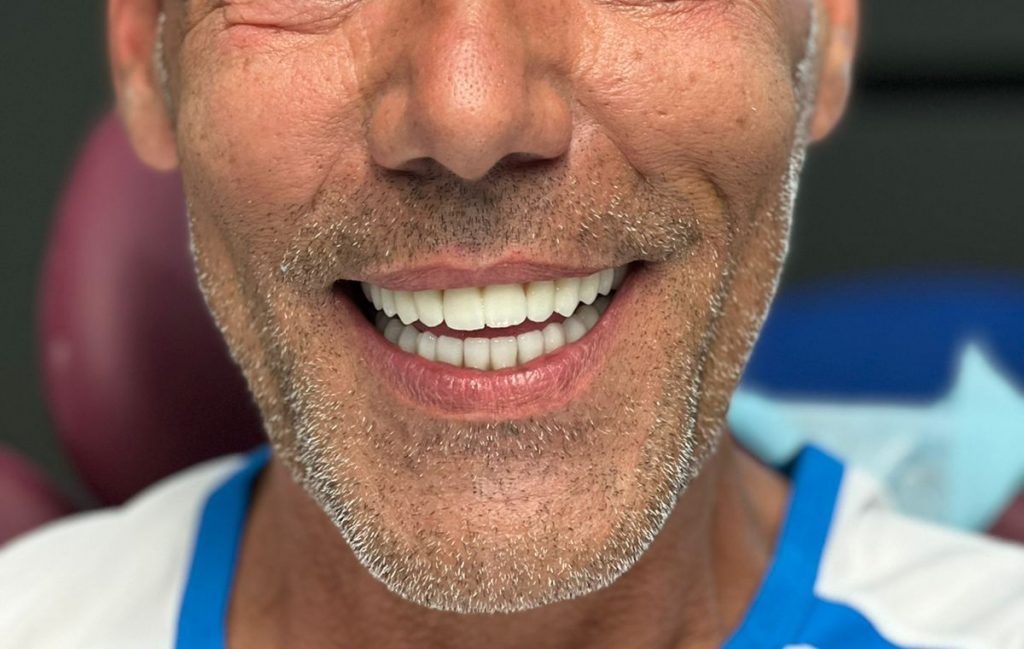The questions you’ve always wanted to ask about oral health
1. How safe are dental x-rays?
Exposure to all sources of radiation – including the sun, minerals in the ground, appliances in your home, and dental x-rays – can damage the body’s tissues and cells and lead to the development of cancer. Fortunately, the radiation dose you are exposed to when taking X-rays is extremely small.
Advances in dentistry over the years have led to low levels of radiation emitted by dental x-rays. Some of the improvements are the new digital X-ray machines which limit the radiation beam to a small area, at higher speed which requires shorter exposure time to achieve the same results and the use of film holders, which they keep it firm in the mouth (prevents the film from slipping and the need to repeat additional radiation exposure). Additionally, the use of lead aprons protects the body from scattered radiation (although this is almost non-existent with modern dental X-ray machines). In addition, the laws require that the accuracy and safety of X-ray machines be checked at least every two years.

2. What are dental sealants, who should make them and how long do they last?
Sealants are a thin plastic coating that is painted on the occlusal surfaces of teeth – usually on the back teeth (the premolars and molars) – to prevent tooth decay. The painted liquid sealant quickly binds to the pits and pits in the center of the teeth, forming a protective shield over the enamel of each tooth.
Babies typically receive sealants on their permanent molars and premolars as soon as these teeth grow. In this way, dental sealants can protect teeth during the age of 6 to 14 when carious processes are frequent. However, adults without cavities or fillings on their molars can also benefit from sealants.
Sealants can protect against cavities for many years, but they need to be checked for chipping or wear at regular dental checkups.

3. When will drill-less dentistry become a reality?
Some dentists offer drill-free dentistry, also called abrasion and microabrasion. Air abrasion can be used to remove cavities, to remove old composite restorations, to prepare the tooth surface for bonding or sealants, and to remove surface stains and discolorations. The air abrasion tool works like a mini sandblaster to spray tooth decay, stain or to prepare the tooth surface for sealant application. With air abrasion, a fine stream of particles is directed to the tooth surface. These particles are made of silica, aluminum oxide or a sodium bicarbonate mixture and are pushed towards the tooth surface by compressed air or a gas. Small particles of caries, stains, etc. on the tooth surface are removed when the flow of particles hits them. The remaining particles are then “sucked” away.
4. What is the latest safety news on amalgam fillings?
Concerns have been raised in recent years regarding silver-colored fillings, called amalgams. Because amalgams contain the toxic substance – mercury, some people believe that amalgams can cause a number of diseases, including autism spectrum disorders, Alzheimer’s disease, and multiple sclerosis.
Numerous public health agencies claim that amalgams are safe and that any link between mercury-based fillings and disease is unfounded. The cause of ASD, Alzheimer’s disease, and multiple sclerosis remains unknown. Also, there is no scientific evidence that if a person has amalgam fillings removed, they will be cured of these or other diseases.
Although amalgams contain mercury, mixed with other metals, such as silver, copper, tin and zinc, they form a stable alloy that dentists have used for over 100 years to fill and preserve hundreds of millions of decayed teeth. Numerous large-scale studies that concluded in 2006 that amalgam fillings are safe.
Additionally, there has been concern about the release of a small amount of mercury vapor from these fillings, but there is no scientific evidence that this small amount is in any way harmful to health.

5. How do whitening toothpastes work and how effective are they?
All toothpastes help remove surface stains through the action of mild abrasives. Some whitening toothpastes contain polishes or chemicals that provide additional stain removal. Whitening toothpastes can help remove only superficial stains and do not contain bleach; Professional whiteners contain hydrogen peroxide (a whitening substance) which helps remove stains on the tooth surface and deep stains in the tooth. None of the home whitening toothpastes can produce the whitening effect that is achieved by visiting the dentist for a whitening treatment. Whitening toothpastes can lighten the color of your teeth by one shade. Otherwise,
6. I would like to change the shape of my teeth. What options are available?
There are so many possibilities to change your teeth, make them look longer, close the gaps between your teeth, or repair chipped or cracked teeth. Options include bonding, crowns, veneers and recontouring.
Dental cementation or bonding is a procedure in which a durable tooth-colored material is applied to the tooth and tempered with a special light to make it adhere to the tooth.
Dental crowns are tooth-shaped “caps” that are placed over the teeth. When cemented, they completely enclose the entire visible part of the gum line.
Dental veneers are custom-made casings of materials such as ceramic. These ‘shells’ are tied to the front of the teeth.
Tooth reconstruction or remodeling (also called odontoplasty, enameloplasty, stripping) is a procedure in which small amounts of dental enamel are removed to change the length, shape or surface of the tooth.
Each of these options is different in cost, duration, duration of treatment required to complete the procedure, anti-stain qualities and the best cosmetic approach to solve a specific problem. Talk to your dentist to find the right one for you.
7. I have a terrible fear of going to the dentist. What can I do?
If you are worried about going to the dentist, you are not alone. Numerous people report that they do not go to the dentist because of anxiety or fear. The first thing you should do is speak to your dentist. In fact, if your dentist doesn’t take your fear seriously, seek out another dentist. The key to dealing with dental anxiety is to discuss your fears with your dentist. Once the dentist knows what your fears are, he or she will be able to work better with you and determine the best ways to make you less anxious and more comfortable.
The good news is that today there are a number of strategies that can be used to reduce fear, anxiety and pain. These strategies include the use of medications (to numb the treatment area or sedatives or anesthesia to help you relax), the use of the laser instead of the traditional drill to remove tooth decay, the application of a variety of techniques. / body to reduce anxiety (such as guided imagery, biofeedback, deep breathing, acupuncture, and other mental health therapies) and perhaps even visits to a dentophobia clinic or support group.

8. There are so many toothpastes to choose from; how do i know which one to use?
First, when buying toothpaste for yourself or your baby, select one that contains fluoride. Toothpastes containing fluoride are indicated to prevent tooth decay. However, be careful to use only a small amount for children under 6 (their nail size). This is because young children swallow toothpaste and too much fluoride swallowing can lead to permanent tooth discoloration.
Then, consider other properties of the toothpaste – such as whitening, tartar control, gum care, desensitization, etc. – the best advice for selecting from all these products is to ask the dentist what are the greatest needs of your mouth right now.
Finally, your personal preference comes into play. Choose the toothpaste that tastes you like or feel best with. Gel or paste, they all work the same way. If you find that some ingredients irritate your teeth, cheeks or lips, if your teeth have become more sensitive, or if your mouth is sore after brushing, try changing your toothpaste. If the problem persists, consult your dentist.




